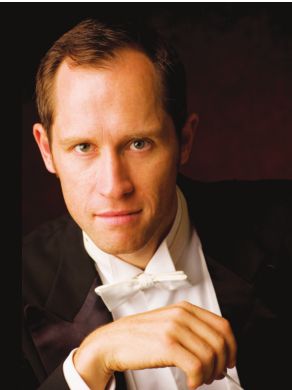
The symphony has Lincoln and trains on its mind
The final concert of the Illinois Symphony Orchestra’s 2014-2015 season is happening on Saturday, May 2, as part of the Lincoln Funeral Coalition. “The whole city is going to be gripped by this and we are so, so thrilled to be playing our part in it all,” says ISO music director Alastair Willis.
The concert’s second half will consist of a piece entitled “The Lonesome Train” by composer Earl Robinson, which has been described as a “musical illustration of Lincoln’s funeral train,” and which Willis calls “the perfect piece of music for our concert.”
“The Lonesome Train” is hugely elaborate, involving the full ISO along with the Illinois Symphony Orchestra Festival Chorus (made up of more than 100 members from the Bloomington-Normal and Springfield communities). As if that weren’t enough, this chorus will be joined by the Heritage Ensemble, a gospel chorus from Peoria. There will also be narration written by Lincoln historian Michael Burlingame and read by Frank Williams, and performances by Lincoln impersonator John O’Connor, balladeer Ralph Shank, preacher Calvin Hightower and even a genuine square dance caller. “It tells, literally, the story, from the train leaving the East Coast, passing through the cities and finally arriving – ‘Last stop, Springfield!’” enthuses Willis. “I can’t imagine anything more exciting for the orchestra to be offering for this weekend.”
The first half of the concert will also boast a train theme, featuring Aaron Copland’s “John Henry,” along with a piece called “Pacific 231,” about a West Coast steam engine, written by French composer Arthur Honegger.
The final piece in the first half will be the “Porgy and Bess” suite by George Gerwshin, consisting of highlights from the opera of the same name. Beyond the lyrical connection to the overall train theme due to the famous lines about the train leaving the station for the Promised Land, Willis explains that the thematic resonance runs much deeper. The original opera, co-written by Gershwin and his brother, Ira, with novelist DuBose Heyward and first presented on Broadway in 1935, took place in a “negro” tenement and – controversially for the time – had an entirely black cast. “The African-American connection is profound,” says Willis. “It’s what Lincoln stood for.”
Scott Faingold can be reached at sfaingold@illinoistimes. com
